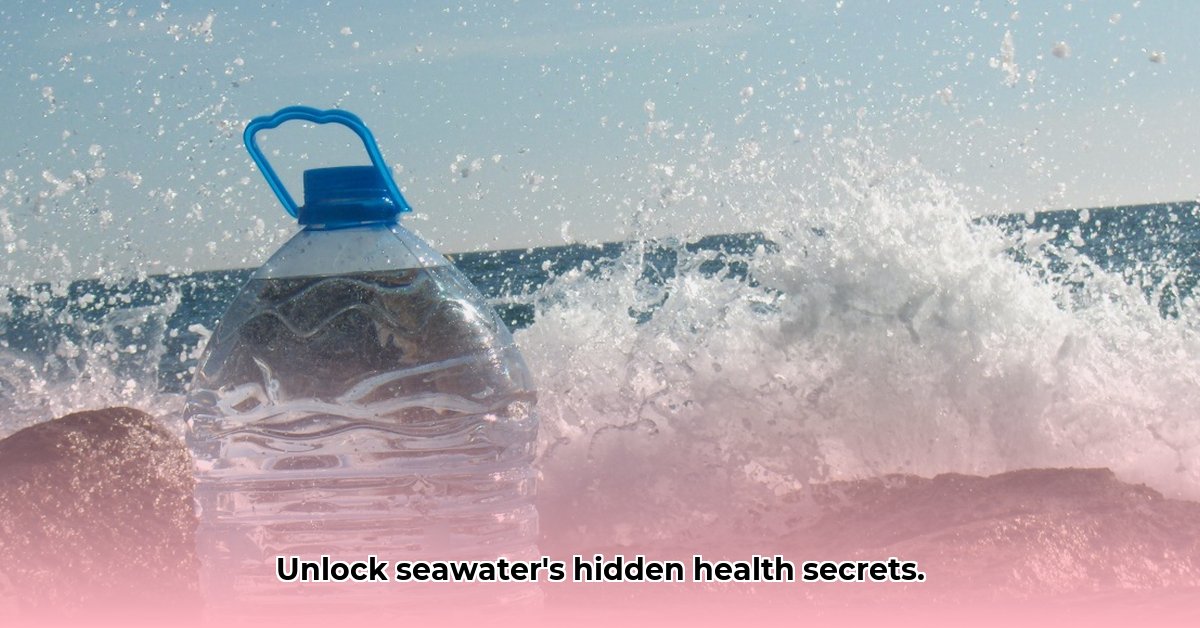
What is Seawater? Understanding its Composition and Variations
Seawater, more than just salty water, is a complex aqueous solution containing dissolved salts, minerals, and trace elements. The composition varies significantly depending on location and depth. Surface seawater, exposed to sunlight and atmospheric influences, differs from deep seawater (DSW), harvested from depths exceeding 200 meters (656 feet). DSW is generally cleaner and richer in certain minerals, but purity remains a critical consideration. Potential contaminants, including heavy metals and microplastics, necessitate careful sourcing and processing for therapeutic applications.
Anecdotal Evidence and Traditional Uses: A Historical Perspective
For centuries, cultures worldwide have utilized seawater for various health purposes, from wound healing to bathing rituals. These traditional uses, while historically significant, often lack the robust scientific evidence required for definitive conclusions. While anecdotal reports provide intriguing hints at potential benefits, they cannot stand alone as proof of efficacy. Rigorous scientific studies are crucial to establish a firm foundation for understanding seawater’s role in health and wellness.
Scientific Evidence: Current Research and Future Directions
The most compelling scientific evidence supporting seawater's benefits centers on its effects on skin health. Studies suggest that the mineral content of seawater, particularly magnesium and iodine, may have anti-inflammatory and soothing properties beneficial for conditions like eczema and psoriasis. [1] However, evidence supporting seawater's therapeutic applications beyond dermatology remains limited. Further research is crucial to determine its efficacy in treating other ailments. Currently, many purported benefits are based on limited evidence and require further investigation.
Different Applications and Supporting Evidence
Several applications of seawater exist, each with varying levels of scientific support:
- Seawater Baths: Soaking in seawater can be relaxing and potentially beneficial for skin due to mineral absorption. More research is necessary to quantify these effects.
- Topical Seawater Applications: Diluted seawater is used in some skincare products. However, clinical trials are needed to establish efficacy and safety.
- Drinking Deep Seawater (DSW): Processed DSW, marketed as a mineral supplement, requires caution due to its high sodium content. The long-term effects require extensive investigation, particularly regarding cardiovascular health.
Risks and Considerations: Safety and Precautions
Using seawater for health purposes carries potential risks. Untreated seawater can harbor harmful bacteria and pathogens. DSW, while generally cleaner, requires proper processing to eliminate potential contaminants and ensure safety. The high sodium content in seawater poses a risk for individuals with hypertension. Therefore, purification and appropriate processing are essential. It is imperative to consult a healthcare professional before using seawater for any therapeutic purpose.
Conclusion: A Balanced Perspective on Seawater's Potential
While some evidence suggests potential benefits of seawater, particularly for skin health, much remains unknown. Further research is needed to fully understand its effects and establish appropriate usage guidelines. A balanced approach acknowledging both the promising potential and limitations of current research is necessary. Always prioritize safety, consult with healthcare professionals, and choose high-quality, purified products when exploring seawater's potential health benefits.
References
[1] https://pmc.ncbi.nlm.nih.gov/articles/PMC5221345/